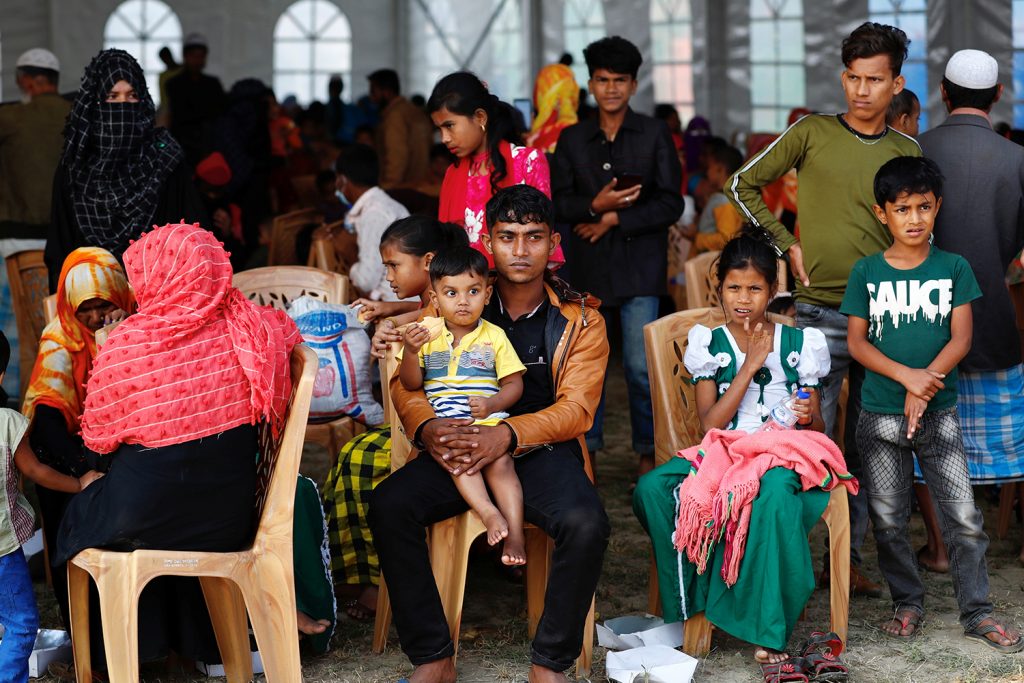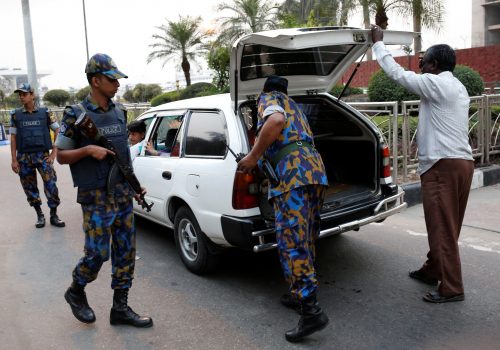Eighteen months into Myanmar’s military dictatorship, the country’s Rohingya population continues to endure severe human rights violations well documented by the United Nations. Nearly one million individuals are subject to to bamboo and tarpaulin shacks in thirty-four squalid camps in the southeastern part of the country, with no work, poor sanitation, and little access to education. Despite a recent wave of protests demanding repatriation back to Myanmar, a long history of exclusion and marginalization offers mixed hope.
To understand the dynamics of the genocide, the Atlantic Council’s South Asia Center hosted an interview between non-resident senior fellow Rudabeh Shahid and author Ronan Lee.
Lee’s book, Myanmar’s Rohingya Genocide: Identity, History, and Hate Speech, sheds light on Rohingya identity, history, and culture, contributing significantly to the study of the Rohingya people as well as different stages of the genocide. It draws on interviews and testimonies from the Rohingya themselves to assess and outline the full scale of the disaster. The discussion also sheds light on the difficulties in conducting Lee’s study, the book’s recent ban in Myanmar, post-coup Rohingya conditions, and wider repercussions for the South Asian region.
This interview was recorded on June 29, 2022.

The South Asia Center is the hub for the Atlantic Council’s analysis of the political, social, geographical, and cultural diversity of the region. At the intersection of South Asia and its geopolitics, SAC cultivates dialogue to shape policy and forge ties between the region and the global community.
Related content
Image: Rohingyas are seen inside a tent as they wait to board a ship as they are moving to Bhasan Char island in Chattogram, Bangladesh, December 4, 2020. REUTERS/Mohammad Ponir Hossain



